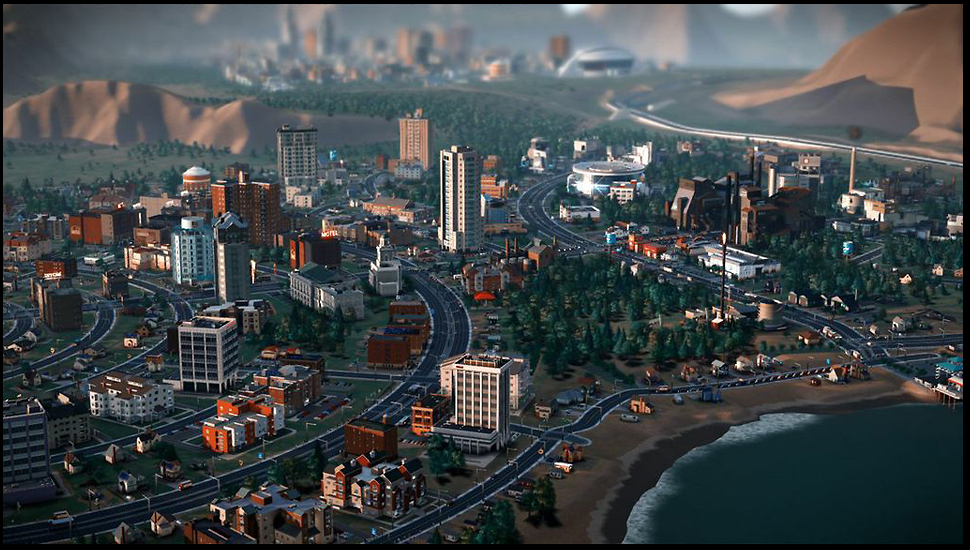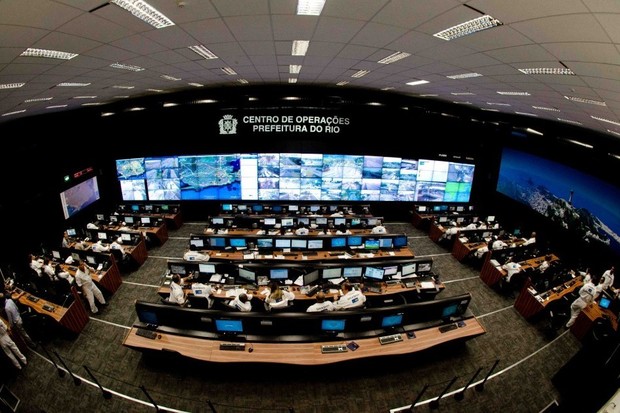(Are smart cities inhabited by the Sims? SimCity 5 model built by a team from MIT)
Today, domination perpetuates and extends itself not only through technology but as technology. (Marcuse, One Dimensional Man, p. 158)
Who doesn’t want to live in a smart city? Who wouldn’t want to benefit from the efficiency, responsivity and security promised by the smart city’s streamlined, seamlessly integrated electronic metabolism? Just imagine the gains in sustainability… Really, what’s there not to like?
Lots, if you’re asking mega-architect Rem Koolhaas. In recent comments made at a conference in Brussles, Koolhaas had some pretty scathing remarks about smart cities. The (short) piece is really worth reading in its entirety, but here’s what stood out for me.
What does “smart” stand for? Koolhaas thinks that smart cities represent yet another stage in the bearing down of financial imperatives on urban life forces. While the financialization of cities comes in different shapes and forms, Koolhaas points to how it catalyzes the transformation of cities from spaces full of surprises and productive friction into highly regulated zones of commerce. As he puts it, “With safety and security as selling points, the city has become vastly less adventurous and more predictable.” Predictability, of course, is good for business. And so are order and efficiency.
So it only makes sense, then, that the smart city finds a natural alley in the “creative class”, snuggling alongside “innovation” in the rhetorical basket of civic decision-makers and administrators. As Koolhaas writes, “Mayors are particularly susceptible to the rhetoric of the smart city: it is very attractive to be a smart mayor”. This rhetorical alliance was in full view in a recent event organized by Simon Fraser University’s Public Square program. The title of the event, which brought together Richard Florida and Ray Kurzweil, was “will innovation save us?”, and the answer, unsurprisingly, was a resounding ‘yes’. But which innovation will save us? The kind that attracts the “right” kind of tax payers to the city, or the one that aims to transform cities into more affordable, inclusive and just spaces?
(inside Rio de Janeiro’s IBM-built control room)
Since urban populations tend to be more agitating, the residents of the smart city are first and foremost entities to be managed. In Koolhaas’s words:
The citizens the smart city claims to serve are treated like infants. We are fed cute icons of urban life, integrated with harmless devices, cohering into pleasant diagrams in which citizens and business are surrounded by more and more circles of service that create bubbles of control. Why do smart cities offer only improvement? Where is the possibility of transgression?
So is the smart city the new face of technocracy – the coming technocracity?
For Marcuse, technocracy stood for the way ideology becomes habituated as bureaucratic procedures and structures, mobilizing science and technology as means to normalize domination. In technocracy, the modern embrace of scientific knowledge and technological innovation – the march of progress, the will to innovate, and so forth – becomes part of the ideological edifice. As means trump ends, reason itself becomes domination. In this sense, is it possible that the smart city is merely a veneer of financially-motivated, neoliberal flavoured innovation serving as barrier for progressive social innovation? What room do we have to shape future cities when more and more of the city’s life processes go unnoticed under the hood of interlocking technological systems? Is this not Democracity coming to life as Frankenstein’s monster?
(apparently not a smart city)
At the end of his talk, Koolhaas states that “Smart cities and politics have been diverging, growing in separate worlds. It is absolutely critical that the two converge again.” But seen through the lens of technocracy, what Koolhaas identifies as the severing of civic innovation from democratic politics is actually the inverse: smart cities are not nonpolitical but in fact are hyper-political, only they mobilize a different mode of politics, one that becomes ever harder to engage since it hides behind the rhetoric of innovation, and operates through expert-driven technological development. The smart city seems woefully like Haussmannization by other means.


